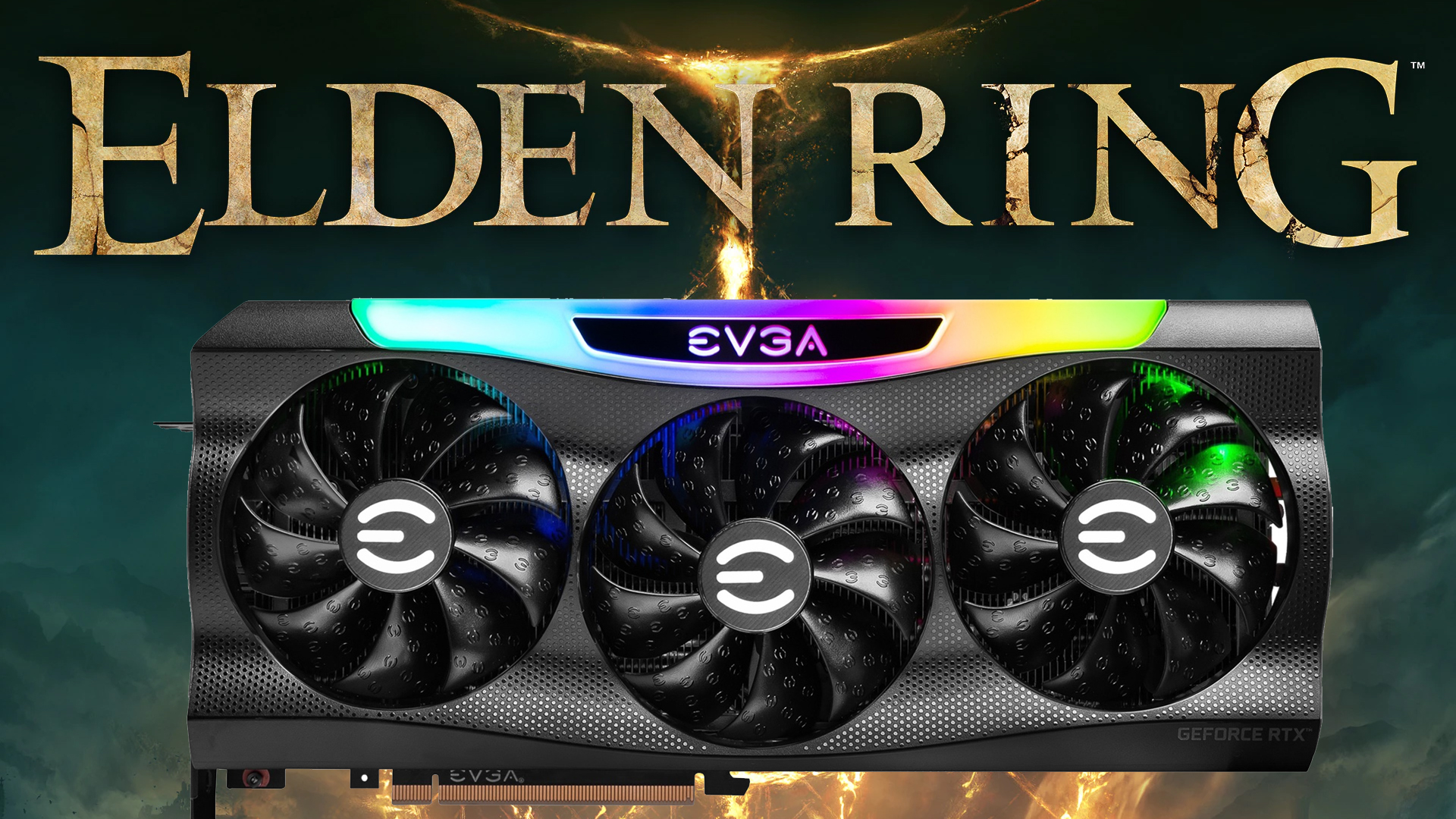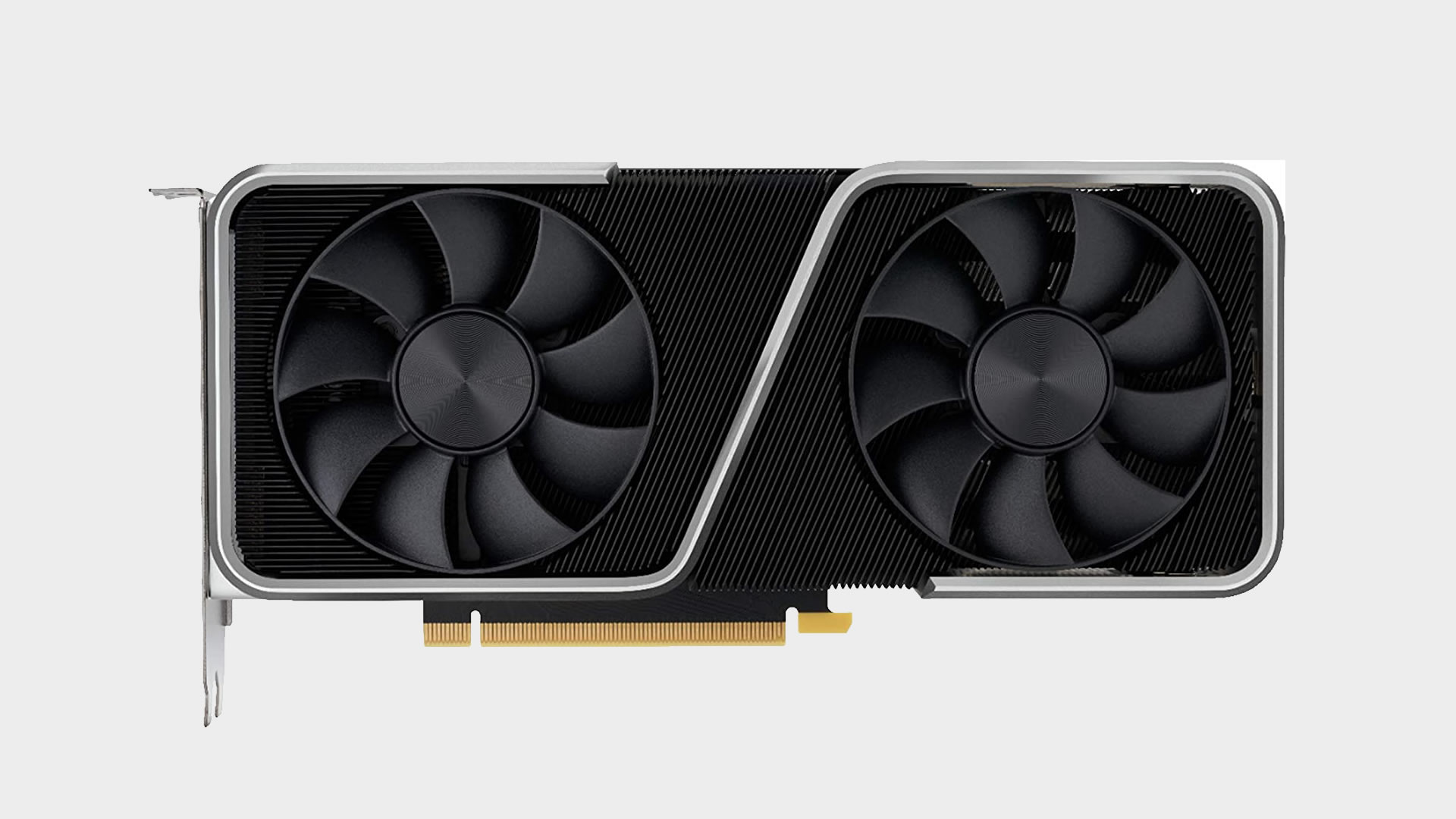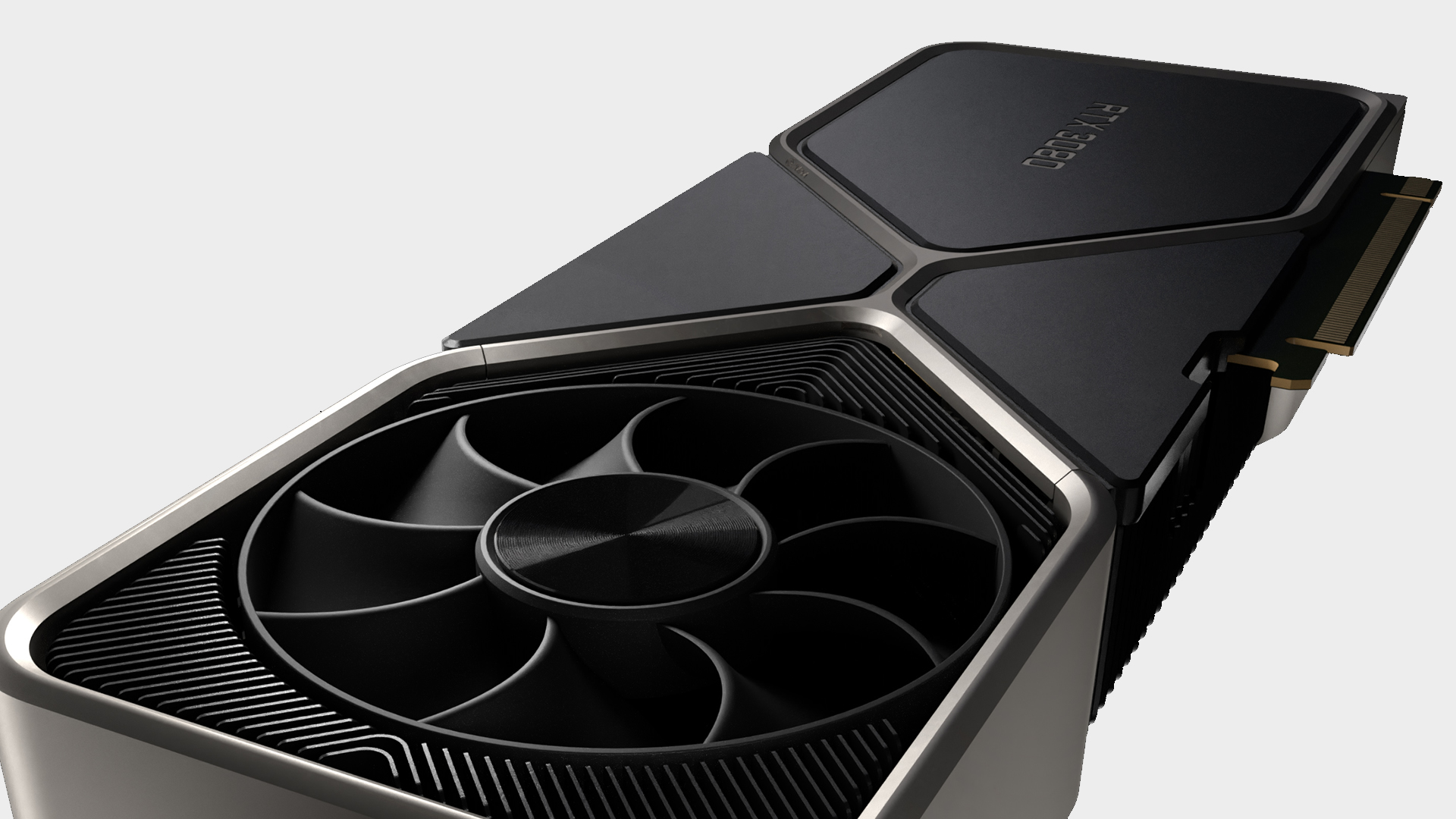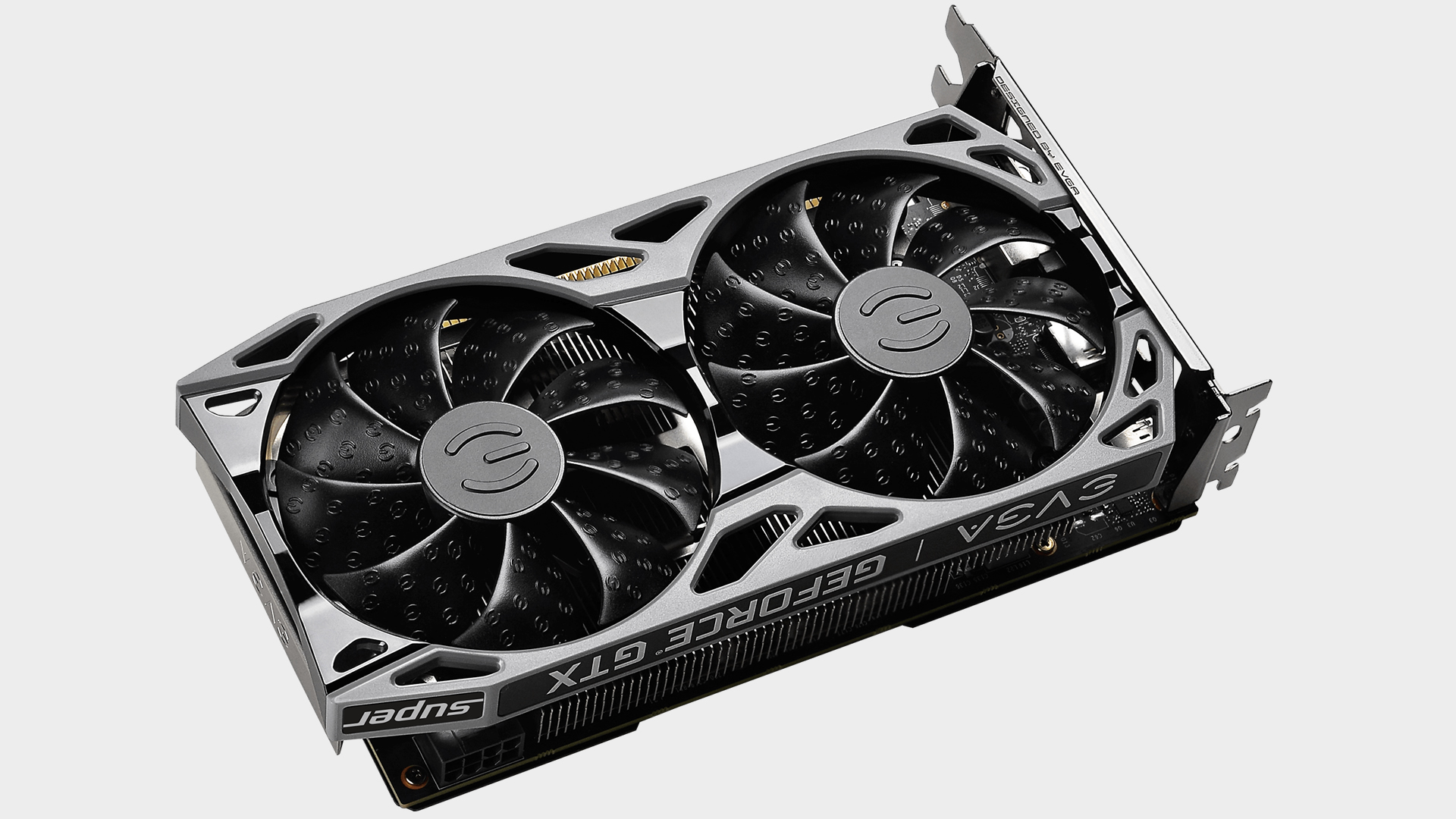Best graphics card for Elden Ring - ideal GPUs for top performance
These are the best GPUs to consider for FromSoftware's latest epic.

Recommended:
CPU: Intel Core i7-8700K / AMD Ryzen 5 3600X or better
GPU: Nvidia GeForce GTX 1070 / AMD Radeon RX Vega 56
Memory: 16GB RAM
Storage required: 60GB
Minimum:
CPU: Intel Core i5-8400 / AMD Ryzen 3 3300X or better
GPU: Nvidia GeForce 1060 / AND Radeon RX 580
Memory: 12GB RAM
Storage required: 60GB
If you want to experience FromSoftware's latest title at its highest quality then you'll need one of the best graphics cards for Elden Ring. Fortunately, due to fairly modest system requirements, the challenging action RPG can be played on cheap graphics cards as well as the bleeding-edge models, depending on the resolution you want to be gaming in.
Experiencing Elden Ring in all its visual splendor, however, requires one of the best graphics cards for gaming to push those sliders to the max. The game very much relies on its art direction more so than flexing those textures and polygons in a fashion that Soulsborne fans are no doubt accustomed to now, but that doesn't mean it's a slouch in the graphics department.
There are two other considerations that are going to make your Elden Ring experience more enjoyable as well, these are your processor of choice and the amount of memory in your machine. Recommend system requirements are enforcing 16GB memory, so you'll need at least an 2x8GB kit of the best RAM for gaming to keep up. As for the chipset, an 8th generation Intel i7 or previous-gen AMD Ryzen 5 should see you through; far from the best CPU for gaming out there, but if you're rocking anything less in 2022 then you may be due an upgrade.
Recommended graphics card for Elden Ring
Why you can trust GamesRadar+
As with other FromSoftware games, you'll no doubt notice that Elden Ring is quite graphically stunning with an emphasis on strong art direction above raw visual prowess, though. The recommended specs for Elden Ring on PC are advising the use of either an Nvidia GeForce GTX 1070 8GB or AMD Radeon RX Vega 56 8GB or similarly powered equivalent. Both of these GPUs are around pushing six years old now, however, and are running aging GDDR5 VRAM, so if you're buying a new graphics card specifically to enjoy Elden Ring, we'd recommend future proofing yourself.

Nvidia GeForce RTX 3060 Ti
Specifications
Reasons to buy
Reasons to avoid
The Nvidia GeForce RTX 3060 Ti is the best graphics card for Elden Ring that most PC players are going to want to consider. This is because the Ampere GPU features 8GB GDDR6 memory and a 256-bit memory bus, meaning you can push the graphics potential of FromSoftware's latest opus at high settings in both 1080p and 1440p. If you're after stable 60 FPS in 4K (2160p) natively, though, then you're going to want to think about something on the higher-end of the spectrum.
While the RTX 3060 Ti can indeed run the game in 4K at its capped 60 FPS frame rate, there have been reports of stuttering and slow down in certain areas of the game world at this resolution. We would recommend keeping things locked to 1440p for that perfect mix of visual fidelity and smooth performance. At the time of writing, Elden Ring does not currently support DLSS (Deep Learning Super Sampling) meaning you're solely having to rely on the native performance of the video card.
With that said, this GPU for Elden Ring is ideal for most people, and we've seen RTX 3060 Ti prices begin to come down from what they were throughout the majority of the previous year.
- Check US RTX 3060 Ti stock: Amazon | Newegg | Best Buy | Walmart
- Check UK RTX 3060 Ti stock: Amazon | Currys | Overclockers UK | Ebuyer | Box
High-end graphics card for Elden Ring

Nvidia GeForce RTX 3080
Specifications
Reasons to buy
Reasons to avoid
If you're after a high-end graphics card for Elden Ring then the RTX 3080 is all you're going to need to experience the world of The Lands Between in stable 4K60. RTX 3080 stock is available with either 10GB (including the Founders Edition) or 12GB VRAM (exclusive to partners which launched in January 2022). Regardless of which model you choose, you'll have substantial overhead in order to push the graphics prowess of FromSoftware's tough-as-nails open-world action game.
Currently, Elden Ring is capped at 60 FPS on PC and no official word has been released as to when this frame rate limiter could be lifted. What we do know, however, is that, should the day come, you can expect far higher frames with this hardware. It's currently unknown whether this one was done for console parity with Xbox Series X or PS5, though, having the game run natively at 4K60 is sure to be enough given the pace of the title.
If you're interested in a more thorough run-through of what this GPU can do, then our RTX 3080 review is sure to satisfy any burning questions in greater detail.
- Check RTX 3080 stock (US): Amazon | Newegg | Best Buy | Walmart
- Check RTX 3080 stock (UK): Amazon | Currys | Ebuyer | Overclockers UK | Box
Minimum requirements graphics card for Elden Ring

Nvidia GTX 1660 Super
Specifications
Reasons to buy
Reasons to avoid
The GTX 1660 Super is the ideal graphics card to hit the minimum recommended requirements in Elden Ring. This budget GPU features 6GB GDDR6 VRAM and a 192-bit memory bus which enables it to run Elden Ring in 1080p at 60 FPS at high and max settings.
1440p performance, though, is a little choppier in places, with frame rates generally hovering between 45 and 60 FPS depending on the area. We recommend keeping the resolution lower to have those frame rates consistent as 60 FPS is the way to play the game.
Elden Ring currently does not have support for ray tracing, though it's been rumored that a patch coming could implement the graphics rendering technology. In which case, it's worth pointing out that only RTX GPUs are capable of running ray traced shadows, global illumination, reflections, etc.
Alternatively, the most affordable of the Ampere line-up is the perfect budget graphics card for Elden Ring due to its 8GB GDDR6 memory and respectable 128-bit memory bus, especially if you're wanting to future-proof your machine a little more.
You can find RTX 3050 stock substantially cheaper than the current RTX 3060 prices, so if you're after the best bang for your buck ahead of your Elden Ring playthrough then this could be the GPU for you. Should you want to know how this graphics card performs in other games, too, our RTX 3050 review is ideal for anyone wanting further knowledge.
Check for RTX 3050 stock (US): Best Buy | Amazon | Newegg | B&H Photo | Adorama | Walmart
Check for RTX 3050 stock (UK): Ebuyer | Amazon | Overclockers UK | Currys | CCL | Box
Elden Ring's a pretty long video game, so you'll need to be comfortable for your time spent in The Lands Between. You can do so in style with the best gaming chairs and best gaming desks. And if your panel's due an upgrade, ditch your old display for one of the best gaming monitors.
Weekly digests, tales from the communities you love, and more

Aleksha McLoughlin served as the Hardware Editor for GamesRadar from June 2021 until August 2022. Her main area of expertise was the PC gaming platform, which comprised buying guides, features, reviews, and news coverage on components and prebuilt machines. She was also responsible for gaming chairs and storage. She now works on a freelance basis while studying to become a university lecturer specializing in English for foreign territories. Prior to joining GamesRadar, she wrote for the likes of Expert Reviews, The Rory Peck Trust, No Clean Singing, Vinyl Chapters, and Tech Spark while also working with the BBC.


